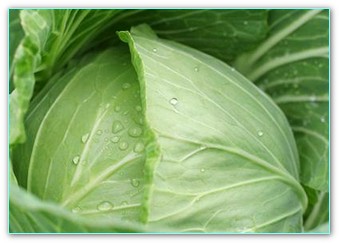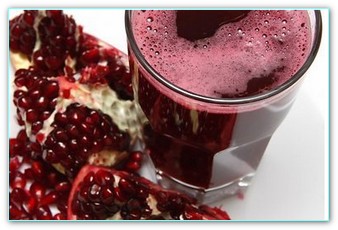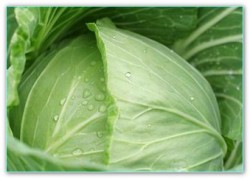According to the famous American nutritionist Johnny Bowden, it is necessary to regularly include the following in our diet: the most healthy foods that have a beneficial effect on the human body and improve health:
Beet
A real storehouse of vitamins and minerals, nutrients and fiber. Beets contain vitamins C, B1, B2, P, PP, carotene, folic acid, trace elements such as iron and iodine, magnesium and potassium. It is most useful to use beets in their raw form (grated and in the form of juice), but you can also use boiled, dried, pickled beets.
Fatty acids block the accumulation of bad cholesterol. Spirulina contains about 7%. They are essential for the proper functioning human body. Spirulina contains only vitamins of natural origin. The availability of carotenoids has been demonstrated in numerous clinical trials. This vitamin is by far the most difficult to obtain in a vegetarian diet because fruits, vegetables or legumes do not contain it.
Detailed Composition of Spirulina Platinum
Spirulina also contains vitamin E, comparable to that of wheat germ. They protect the cells of our body by destroying free radicals. Of particular interest is that spirulina is rich in minerals such as iron, magnesium, calcium and phosphorus. For proper functioning, the human body must supply minerals with food. They are responsible for good looks, well-being, and are also a building block for bone and muscle tissue.
Cabbage 
Contains a large amount of vitamins ( ascorbic acid, vitamins of groups B, K, D, carotene), mineral salts, enzymes, substances that have a bactericidal effect (lysozyme) and heal ulcers (the so-called vitamin U). A large number of fiber, pectin compounds in cabbage helps to remove excess cholesterol, toxic substances from the body, increases defenses, immunity to fight diseases. Fresh cabbage salad is nutritious, healthy, prevents the development of many formidable ailments, therefore it belongs to the most useful foods and should be in daily diet each person.
Spirulina is an excellent source of iron. Iron is a mineral found mainly in animal foods such as meat, organ meats and fish. Spirulina consumption significantly reduces the risk of major micronutrient deficiencies in the diet.
Why take vitamins instead of eating fruits?
Amino acids Amino acids are important building blocks of proteins. Not all of them are in food, so you have to bring them in from outside. Of course, we can eat a lot of vegetables and fruits. Vegetables tend to be richer in vitamins and minerals than fruits, with much more high density nutrients, reporting their total caloric content to come.
Chard
Herbaceous plant, a kind of beetroot. Chard leaves and stalks rich in vitamins and microelements are recommended to be consumed in the form of a salad, seasoned with olive oil.
Cinnamon
A spice, usually sold in ground form, obtained from the dried bark of an evergreen tree of the laurel family. It has a pronounced antioxidant and antimicrobial effect, can be added as a seasoning to a variety of dishes and drinks.
Less informed, they still think that people who take supplements are eating pills. In fact, people who take nutritional supplements have been very well developed, thanks to the documentation and information of the constant efforts to buy quality food, prepare them optimally and consume them in appropriate quantities. Only then comes the completion and correction of dietary supplements.
Does it actually contain food?
Dietary supplements are effective and minimal risk overdose, which are intended to ensure the safety of consumers. It is very difficult to overdose on vitamins and minerals if you manage to do it right, even if you take them for a long time without interruption.
Pomegranate juice 
A good source of vitamins and microelements, strengthening strength and restoring health.
Prunes
When dried, it retains all its beneficial features- from vitamins and minerals to pectins and organic acids.
Pumpkin seeds
Source of vitamins and microelements, vegetable oils and nutrients.
Sea fish
Sardines, salmon, salmon, herring and other types of marine fish are by far the healthiest food, provided that the fish was not farmed in artificial conditions. The benefit is explained, first of all, by the presence of a complete protein, polyunsaturated fatty acids-Omega-3, vitamins and trace elements. Eating fish instead of pork and beef can significantly reduce the risk of developing coronary heart disease and other ailments, and improve health.
Turmeric 
Another spice that has unique properties to prevent many diseases. Usually added to scrambled eggs or salad.
Blueberry
Fresh and frozen blueberries have a tonic effect, stimulate the body's defenses, maintain the normal state of the gastrointestinal tract and the organ of vision.
Pumpkin
(and in our conditions also zucchini) is a nutritious product rich in vitamins and microelements that maintains strength and strengthens the body.
Naturally, this is far from complete list useful products (there are dozens and even hundreds of them). The main thing is that at least some of the most healthy foods and seasonings (and not) be present in the daily diet, providing the body with vitamins and trace elements, nutrients and fiber, which improves health, reduces the risk of diseases, prolongs life, makes it richer and more interesting.
What foods are rich in vitamins - this question very often worries people who care about their health. After all, as you know, the main source of substances necessary for a person, without which almost all physiological processes in the human body, is food. And right balanced diet can provide the body with the necessary norm of vitamins and minerals. Moreover, after finding out which products contain the most of them, you don’t have to worry about whether you got the necessary one.
None of the vitamins is synthesized by the human body on its own. In addition, out of a dozen and a half vitamins that a person needs, only five are fat-soluble (that is, they have the ability to accumulate in the liver and fatty part for a longer time), while the rest are water-soluble, that is, they are excreted by water in excess, and therefore require regular daily replenishment. To help you balance your diet, we will try to tell you which foods are especially rich in the vitamins we need.
Foods rich in fat-soluble vitamins
It was opened the very first (as indicated by its letter designation). It is involved in almost every bodily function: Vitamin A is needed to maintain vision and healthy hair and skin, to fight infections and normal operation immune system, it is a powerful antioxidant and is important in the functioning of the lungs, heart, thyroid gland. An adult needs to receive 0.9-1 mg of vitamin A per day. The best sources of it can be called beef liver (100 g of the product contains 8.2 mg of vitamin A) and pork (3.45 mg), the next are chicken egg yolk ( 1.26 mg), butter(0.43 mg); among the sources of plant origin, the richest in this vitamin are carrots, sea buckthorn, mountain ash, rose hips.
Vitamin D also tends to accumulate in the body in fatty tissues. It includes two biologically active substances, from which cholecalciferol comes both with food and is synthesized with the help of ultraviolet rays, and ergocalciferol comes only with food. The main function performed by this vitamin is the absorption of calcium in the small intestine, among the additional ones is participation in metabolic processes, coordination of cell reproduction. daily requirement the human body in it - 15 mcg. Maximum amount vitamin D can be obtained by eating sprats in oil (20.5 mcg per 100 g of product), followed by butter (3.5 mcg), egg(2.5 mcg) and meat (1.3 mcg).
Another necessary for man a fat-soluble vitamin is vitamin E. In addition to being the main antioxidant substance, it strengthens the myocardium and vascular walls, slows down cell aging, and improves their nutrition. An adult needs to consume 8-10 mg of vitamin E per day, this rate can be obtained by eating butter (121 mg per 100 g of product), sunflower oil(44 mg), corn (18.6 mg), soy (17.1 mg), as well as sprouted grains of wheat and corn (15-25 mg), oat grains, rye. In general, vitamin E is found in many foods.
Vitamin K is important for healthy kidney function, the absorption of calcium by some organs, and it also plays a role important role in blood clotting. It is recommended to consume 120 micrograms of vitamin K per day, which is most found in spinach (482 micrograms), lettuce (173.6 micrograms), white cabbage (76 micrograms).
Foods rich in water-soluble vitamins
Among the water-soluble most large group make up B vitamins. In natural products, they exist together and solve one main task - energy production and participation in cellular respiration. They cannot be accumulated, so you need to take B vitamins daily. It is worth noting that they are destroyed under the influence of alcohol, nicotine, caffeine.
Vitamin B1. The required rate is 1.1-1.2 mg. Most of all it is found in peas (0.81 mg per 100 g), soybeans (0.94 mg), yeast (0.60 mg), beans (0.50 mg), buckwheat (0.43 mg), wheat (0 42 mg), pork and beef liver (0.30 mg each).
Vitamin B2. Daily rate- 1.3 mg. Its maximum content is in the liver (2.19 mg per 100 mg), heart and kidneys (1.8 mg each), eggs, and milk.
Vitamin B6. The norm that the body needs is 1.6-2 mg. It can be obtained by eating daily foods such as: walnuts(0.80 mg per 100 g of nuts), hazelnuts (0.70 mg), beef liver (0.70 mg), chicken meat (0.52 mg), sweet red pepper (0.50 mg).
Vitamin B12. The required rate is 6 mcg. Its maximum content can be found in beef liver (60 mcg per 100 g of product), pork liver (30 mcg), beef heart (10 mcg), rabbit meat (4.3 mcg).
Vitamin C is necessary for the normal functioning of bone and connective tissues, it is an antioxidant. For adults, the physiological need is 90 mg per day, for smokers this rate increases by about 35 mg; the allowable maximum is 2000 mg. Vitamin C is found mainly in fruits and vegetables. Most of all, your body will receive it if you regularly consume such foods: rose hips (650 mg in fresh, 1000 mg in dry berries per 100 g of berries), sweet pepper (200 mg, in red - 250 mg), currant and sea buckthorn (200 mg), greens, parsley, dried white mushrooms (150 mg each), Brussels sprouts (120 mg), cauliflower (70 mg), oranges (60 mg), sorrel (43 mg), lemons (40 mg) .
Very often we remember about vitamins only when we get sick. But it is so easy not to lead to metabolic disorders, weakened immunity and related diseases - you just need to properly organize your diet. Since the human body does not have the ability to store vitamins for a long time, just try to regularly eat foods with sufficient vitamin content - and be healthy!
